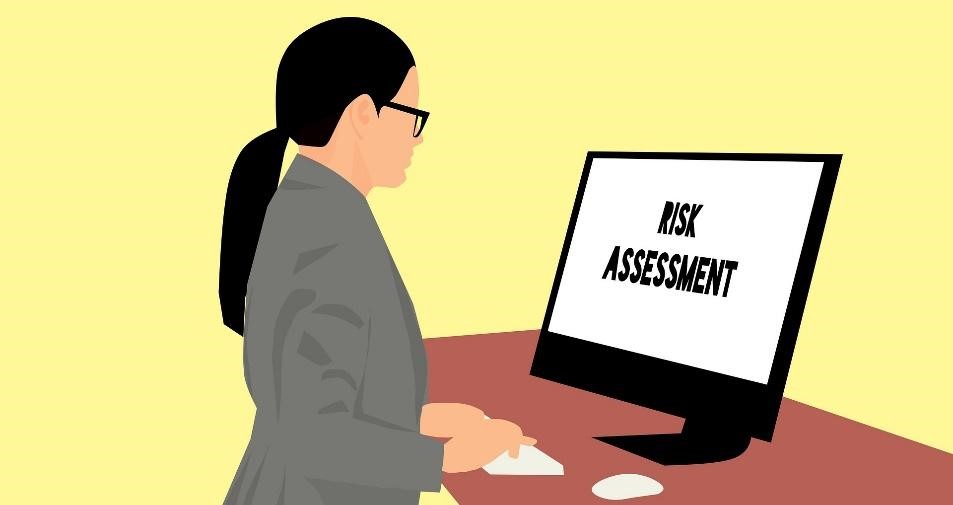Top 8 Tips To Be HIPAA Compliant
7Newswire
19 Jan 2023, 10:12 GMT+10

The Health Insurance Portability and Accountability Act (HIPAA) is a federal law that sets standards for the protection of medical information. This law dictates how healthcare organizations such as hospitals, physicians, insurance companies, and other health-related businesses handle and store patient data.
The purpose of HIPAA is to ensure that all confidential healthcare data is kept secure, private, and protected from unauthorized access. The complexity of HIPAA compliance can make it difficult for organizations to remain compliant. All healthcare organizations must comply with HIPAA regulations to protect patient privacy. Here are some tips on how to stay compliant with the HIPAA Privacy Rule:

1. Understand Your Responsibilities:
Organizations must understand their roles and responsibilities under the various provisions of HIPAA. Organizations must ensure they know the implications of handling Protected Health Information (PHI). They also need to understand their obligations regarding safeguarding confidential information, especially when it comes to patients' rights to privacy. It's also important for organizations to understand what type of PHI needs protection and their role in protecting this data.
2. Create a Comprehensive Privacy Plan
Organizations should create a comprehensive privacy plan that outlines how they will handle PHI in accordance with the law. This plan should include policies related to collecting, storing, accessing, and sharing PHI as well as guidelines about who can view or modify PHI. The plan should also address security issues such as encryption technology and data loss prevention processes.
3. Train Employees on Proper Handling Procedures
Organizations must train employees on appropriate procedures for handling PHI so that everyone understands their roles and responsibilities when dealing with sensitive patient information. Employees should be briefed on which types of PHI need protection and how they can protect it properly. Training should be based both on legal requirements as well as practical strategies for safeguarding sensitive information in a variety of situations.
4. Secure Physical Access To Data
Organizations must take steps to secure physical access to confidential patient data by locking doors or password-protecting computers that store PHI information as well as other documents containing patient names or other identifiable personal information. Any areas where physical access is necessary should be monitored using cameras or other security measures to ensure that only authorized personnel have access to these areas at any given time.
5. Implement Organizational Policies & Procedures
It's important for organizations not only to create policies but also ensure that those policies are actually implemented by staff members correctly for them to be effective safeguards against breaches or mishandling of PHI. Organizations should establish regular auditing procedures so compliance with HIPAA Privacy Rules can be monitored and any noncompliance addressed immediately.
6. Perform Regular Risk Assessments
Organizations must periodically perform risk assessments, which include identifying potential risks associated with disclosing or accessing private medical information from within the organization or from outside sources such as vendors providing services connected with health care systems. These assessments help identify weak points in existing privacy procedures so they can be remedied quickly before any damage occurs.

7. Establish Breach Notification Procedures
HIPAA regulations require all healthcare providers to establish breach notification procedures so that individuals affected by unauthorized disclosures will be informed right away if there has been a security breach involving their protected health information (PHI). Organizations should develop an action plan outlining specific steps they will take if there has been an unauthorized disclosure of PHI.
8. Invest In Security Technology & Software Solutions
Healthcare organizations must invest in security technology solutions such as firewalls, malware protection software, encryption technologies, intrusion detection systems, etc., in order to protect the integrity of stored medical records from malicious attacks. Organizations may also want to consider investing in specialized software solutions designed specifically for managing medical records securely according to requirements established by HIPAA regulations.
Final Thoughts
Staying compliant with HIPAA regulations is vitally important for all healthcare organizations since failure to comply could result in potential fines or even criminal charges if there has been an intentional violation. However, by following the tips outlined above, organizations can ensure they remain compliant, minimizing risk exposure related to electronically protected health information. Share
Share
 Tweet
Tweet
 Share
Share
 Flip
Flip
 Email
Email
Watch latest videos
Subscribe and Follow
Get a daily dose of Hawaii Telegraph news through our daily email, its complimentary and keeps you fully up to date with world and business news as well.
News RELEASES
Publish news of your business, community or sports group, personnel appointments, major event and more by submitting a news release to Hawaii Telegraph.
More InformationInternational
SectionUS sends message by publicizing visa ban on UK punk-rap band
WASHINGTON, D.C.: The Trump administration has made public a visa decision that would usually be kept private. It did this to send...
Tragedy in Spain: Diogo Jota and his brother die in car accident
MADRID, Spain: Liverpool footballer Diogo Jota and his younger brother, André Silva, have died in a car accident in Spain. Spanish...
Early heatwave grips Europe, leaving 8 dead and nations on alert
LONDON, U.K.: An unrelenting heatwave sweeping across Europe has pushed early summer temperatures to historic highs, triggering deadly...
U.S. military, China, Russia in Space race
President Donald Trump's plans to build a space-based Golden Dome missile defense shield have drawn immediate criticism from China,...
Trump wins $16 million settlement from Paramount over CBS Harris edit
NEW YORK CITY, New York: Paramount has agreed to pay US$16 million to settle a lawsuit brought by U.S. President Donald Trump over...
British PM faces major party revolt over welfare reforms
LONDON, U.K.: British Prime Minister Keir Starmer won a vote in Parliament this week to move ahead with changes to the country's welfare...
Business
SectionMeta hires SSI CEO Gross as AI race intensifies among tech giants
PALO ALTO/TEL AVIV: The battle for top AI talent has claimed another high-profile casualty—this time at Safe Superintelligence (SSI),...
Engine defect prompts Nissan to recall over 443,000 vehicles
FRANKLIN, Tennessee: Hundreds of thousands of Nissan and Infiniti vehicles are being recalled across the United States due to a potential...
Microsoft trims jobs to manage soaring AI infrastructure costs
REDMOND, Washington: Microsoft is the latest tech giant to announce significant job cuts, as the financial strain of building next-generation...
Stocks worldwide struggle to make ground Friday with Wall Street closed
LONDON UK - U.S. stock markets were closed on Friday for Independence Day. Global Forex Markets Wrap Up Friday with Greeback Comeback...
Nvidia briefly tops Apple’s record in AI-fueled stock rally
SANTA CLARA, California: Nvidia came within a whisker of making financial history on July 3, briefly surpassing Apple's all-time market...
ICE raids leave crops rotting in California, farmers fear collapse
SACRAMENTO, California: California's multibillion-dollar farms are facing a growing crisis—not from drought or pests, but from a sudden...













